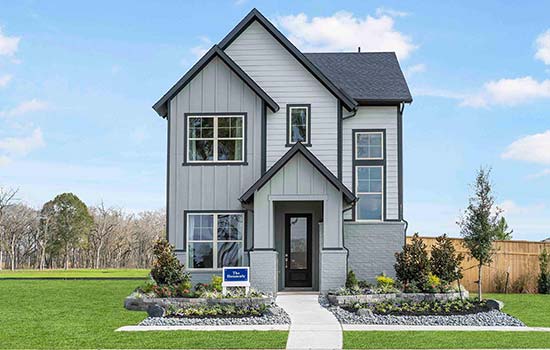Updated: March 29, 2023
Guide FHA Loans: Advantages and Drawbacks
Find out if an FHA loan is right for you by exploring the benefits and restrictions of this path to homeownership.
Finding the right home to fit all your needs and desires can take some time, but we’ve got some great information to make finding the right home and the right home loan easier. Whether you’re a first-time Homebuyer, someone with a lower credit score or someone without much established credit, an FHA loan could be ideal for you.
What is an FHA Loan?

The FHA (Federal Housing Administration) was created in 1934 to bring homeownership within reach during a time when most Americans were unable to buy a home. They’ve continued to serve this function for nearly one hundred years.
These loans are mortgages backed by the FHA and are offered through FHA-approved lenders. With the FHA mortgage insurance protecting their loans, these lenders are able to accept lower down payment amounts and approve financing for buyers whose credit history may not meet other loan requirements.
And, there are many down payment assistance programs that pair with FHA loans to help buyers make homeownership a reality!
What Makes FHA Loans Different than Other Loan Types?
FHA loans are designed to bolster the homeownership goals of families with low-to-moderate incomes. First-time homebuyers are particularly likely to find this U.S. government-backed option advantageous during their search for a dream home.
Conventional home loans are arranged between the lender and the borrower and typically require a sizable down payment and a higher credit score. An FHA loan brings a government agency into the mix as an insurer of the mortgage.
What are the Advantages and Drawbacks of FHA Loans?

There are several key differences between a conventional home loan and an FHA home loan.
The biggest advantage of an FHA loan is its ability to make securing a home loan more achievable for Homebuyers who might not qualify for a conventional loan.
The biggest drawback to an FHA loan is the required mortgage insurance premiums, which increase your monthly mortgage payment amount.
One major consideration that doesn’t fit neatly into either category is the home price. The FHA has an upper limit on the mortgage amount, which varies by location and home type. This value changes on an annual basis. The FHA Mortgage Limit will mean some homes may be out of your reach, but it tends to provide for homes valued well above the national median home price.
What follows is a summary of the pros and cons of an FHA mortgage.
Advantages of FHA Loans:
- Low down payment requirement of just 3.5% for buyers with a credit score of 580 or higher, and 10% down for a score between 500 and 579
- Easier approval than conventional loans with lower credit score requirements and a higher allowance for debt-to-income ratio
- FHA loans can be refinanced as another FHA loan or as a conventional loan
Drawbacks of FHA Loans:
- No matter your down payment amount, FHA loans require mortgage insurance in two parts: a one-time mortgage insurance premium equal to 1.75% of the loan amount (paid at closing or rolled into your loan payment) and an annual premium, paid monthly, for the life of the loan
- Your mortgage insurance premium is for the entire life of the loan, unless you refinance (which could lock you into a higher rate), or if you put down at least 10% and have paid on the loan for 11 years
- To qualify for an FHA loan, homes must meet strict safety and livability guidelines (no fixer-uppers or certain types of foreclosures) and the home being financed must be owner-occupied (no rentals or vacation homes)
How an FHA Loan Works

The first step in acquiring an FHA-backed home loan is to identify mortgage lenders approved by the FHA. The U.S. Department of Housing and Urban Development (HUD), the parent agency of the FHA, hosts an FHA-approved lender database, which you can search to locate candidates for your home loan.
Next, you’ll need to meet the FHA’s requirements, as well as those of the lender. This will include being able to meet a down payment requirement based on your credit score, and will include being granted approval based on the condition and type of home you’re seeking to purchase.
To improve your chances of being approved for an FHA loan, you should be prepared to provide comprehensive paperwork concerning your income, employment, taxes, debt, credit history, savings and other sources of financing you plan to use as part of the purchase.
Since there is a home condition requirement for an FHA loan, you’ll also want to limit your home search to those with a high degree of move-in readiness.
Once you get pre-approved for a home loan from an FHA-approved lender, you can begin your home search. With an FHA loan, the Homebuying process will include filling out a 1003/Uniform Residential Loan Application form and having the home appraised and compared to the FHA’s guidance.
With all that in place, your lender and Real Estate Agent will help you work through the fine print and dotted lines.
Find Your Dream Home

If you’ve reached the financing stage of your homebuying journey, now is a great time to talk through your options with a lender to decide if FHA loans are a good fit for you!
Contact our Internet Advisor, who can recommend a reputable financing team and help you find your dream home in one of our 19 metropolitan regions, all with no commitment or obligation from you!












